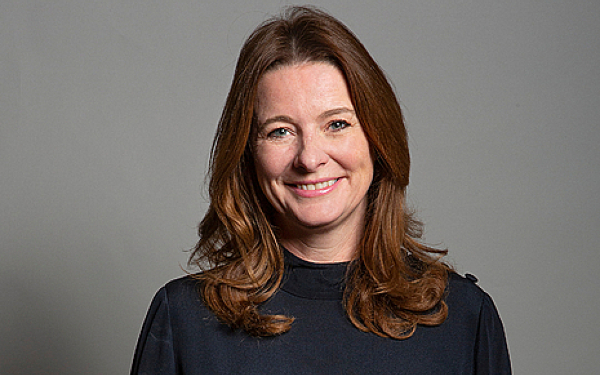
The government has urged councils to take in unaccompanied children after the High Court ruled its practice of housing them in hotels, and Kent council’s failure to accommodate all those arriving in the county, were unlawful.
It is offering £6,000 to any council taking an unaccompanied child from Kent within five days of a notification to do so, extending a policy recently reintroduced for transfers of young people from Home Office-commissioned hotels.
And, in a letter to children’s services directors and lead members last week, education secretary Gillian Keegan urged them to source placements to help the Home Office clear hotels and relieve pressures on Kent, which has been instructed by the court to do its utmost to accommodate all arrivals.
As part of this, she said authorities should explore all available options within foster care, supported accommodation and children’s home provision, including by encouraging providers to open homes that were registered with Ofsted, but not currently operating.
National Transfer Scheme arrangements
Under the National Transfer Scheme (NTS), councils for whom unaccompanied children in care account for at least 0.1% of their child population refer young people to be transferred to an authority with a lower proportion of separated children.
The nine English regions, Scotland, Wales and Northern Ireland take it turns to be responsible for receiving referrals, on a rota system, with regional leaders allocating each case to an eligible authority within their area.
The deadline for transfers between councils are ten days, with a five-day deadline for moves from Home Office-commissioned hotels.
In her letter to council leaders, Keegan said that, as of 14 August, 206 children were awaiting placement through the NTS, of whom 101 were in Home Office hotels. Half this number (51) had been waiting for a permanent placement for two weeks, she added.
She urged leaders to ensure NTS transfers were completed within timescales and also take children into their care outside of their rota responsibilities.
Keegan calls on councils to help reopen children’s homes
In addition, she called on councils to proactively identify placements across all types of provision.
Keegan said Ofsted had identified 70 children’s homes across the country that were registered with the regulator but currently closed.
While she acknowledged this could be for “important and pragmatic reasons”, Keegan urged leaders to “explore with relevant providers whether they would be able to bring the home back into operation”, in order to accommodate unaccompanied young people.
She said Ofsted would consider requests from providers to reopen the homes under its priority application process.
NTS ‘no longer effectively functions’
However, in response to Keegan’s call, the Association of Directors of Children’s Services said that it “[did] not believe the proposals in this letter will sufficiently expand placement capacity in the way that we need, and not in the timeframe we need”.
“You can’t reopen a children’s home overnight not least because there is a shortage of registered managers and residential care workers to staff the homes,” said ADCS vice president Andy Smith.
He said councils were “proactively exploring all options available to them to find suitable places for children in their care to live and to reduce the insurmountable pressures placed on Kent as a result of the judgment”.
However, he said that the NTS “no longer effectively functions”, in the light of pressures including “a lack of adequate funding, a national shortage of placements” and councils supporting an increasing number of care leavers who were previously unaccompanied children.
‘Sustainable solution’ needed
Smith added: “We need a co-ordinated plan over the short, medium and long term to meet the needs of unaccompanied children who need our support. ADCS is actively engaged in discussions with government to try to find a sustainable solution to the way in which the system responds to the needs of unaccompanied children and young people arriving in the UK.”
A government spokesperson said: “We continue to develop plans to ensure local authorities uphold their statutory duties to care for unaccompanied asylum-seeking children.
“Due to the rise in illegal Channel crossings the government had no option but to accommodate young people in hotels on a temporary basis while placements with local authorities were found.
“We will continue to work at pace with Kent County Council and local authorities across the UK to ensure suitable local authority placements are provided for unaccompanied children urgently and sustainably.”





 Assistive technology and dementia: practice tips
Assistive technology and dementia: practice tips  A trauma-informed approach to social work: practice tips
A trauma-informed approach to social work: practice tips 




 Find out how to develop your emotional resilience with our free downloadable guide
Find out how to develop your emotional resilience with our free downloadable guide  Develop your social work career with Community Care’s Careers and Training Guide
Develop your social work career with Community Care’s Careers and Training Guide  ‘Dear Sajid Javid: please end the inappropriate detention of autistic people and those with learning disabilities’
‘Dear Sajid Javid: please end the inappropriate detention of autistic people and those with learning disabilities’ Ofsted calls for power to scrutinise children’s home groups
Ofsted calls for power to scrutinise children’s home groups Seven in eight commissioners paying below ‘minimum rate for home care’
Seven in eight commissioners paying below ‘minimum rate for home care’
 Facebook
Facebook X
X LinkedIn
LinkedIn Instagram
Instagram
Comments are closed.